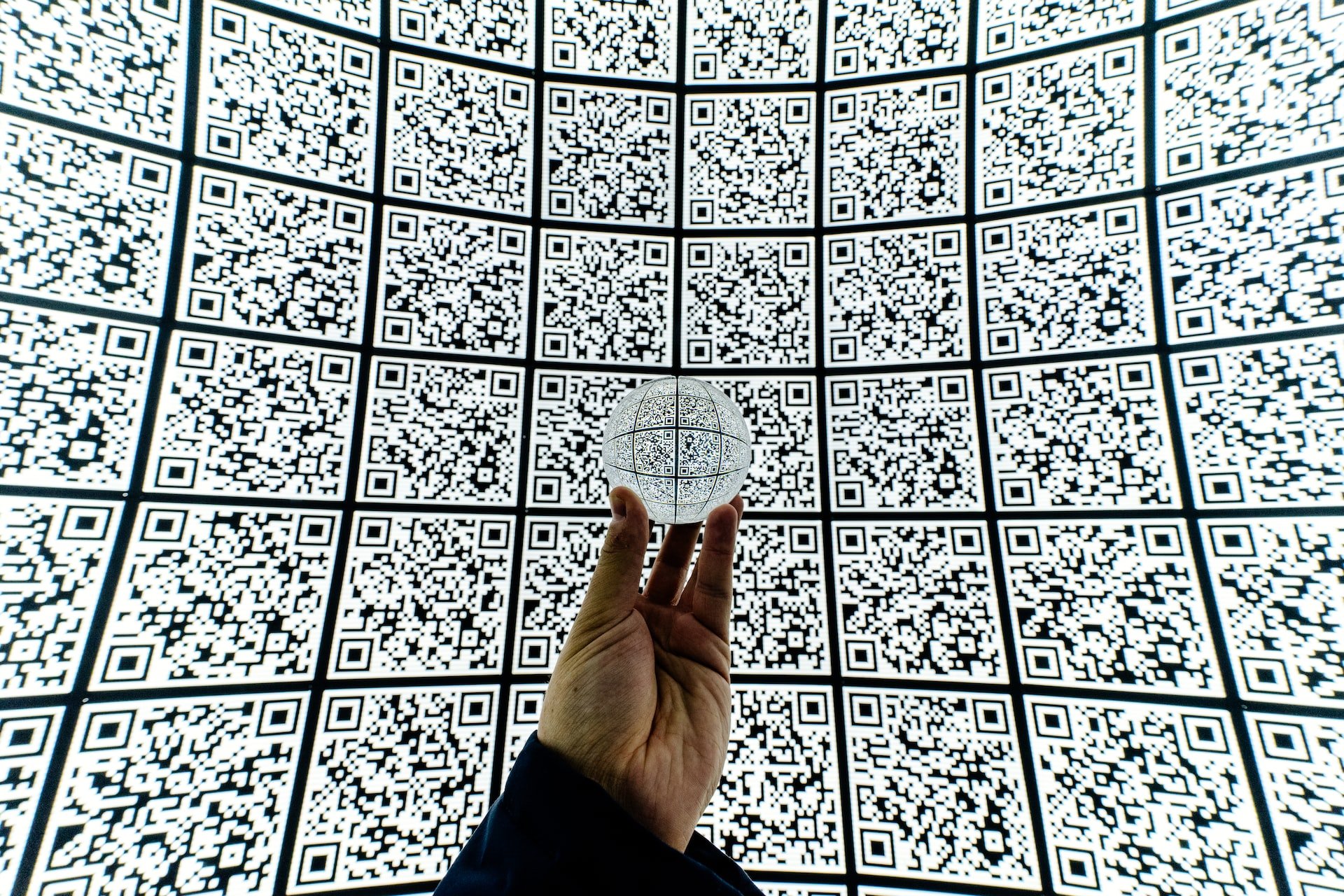First appearing in the mid-1990s as an answer to the technical limitations of traditional barcodes, QR codes are now used in a much broader context, easily scannable with most mobile devices. Because they can easily be printed, they often act as a bridge between offline and online media, allowing consumers to quickly scan a sticker with their smartphone to access a range of online functionality.
For businesses, QR codes are a great opportunity to improve the consumer experience, innovate their marketing efforts, and even improve the payment process. In this article, we’ll find out exactly how QR codes can benefit modern businesses.
Table of Contents
From Tracking Vehicles to Contactless Payments: A Short History of Qr Codes
Japan experienced rapid economic growth during the second half of the 20th century, with many manufacturing companies looking for new ways to innovate and optimize their production processes. Companies were, in particular, looking for an alternative to barcodes that would be able to hold more information than a limited number of alphanumeric characters.
In 1994, the Japanese automotive company Denso and its subsidiary Denso Wave developed the revolutionary QR Code – short for Quick Response Code. Even though its creators were confident in their product, they didn’t expect the QR code to be widely used beyond the automotive industry.
QR code was first implemented as a way to keep track of car parts efficiently, with a single QR code replacing multiple traditional barcodes. Other industries also quickly adopted them, including the food and pharmaceutical industries, which used them for more efficient merchandise control.
By 2002, mobile phones started receiving QR code reading functionality, allowing consumers to scan QR codes on their own, further popularizing the technology, and the QR code itself became an ISO standard. Nowadays, QR codes are used all around the world, and their applications range from interactive museum displays to digital business cards to facilitators of contactless payment.
How Do QR Codes Work?
The largest improvement that QR codes introduced over barcodes was the ability to use 2-dimensional digital image sensors for scanning the code, allowing the QR code to store more than 4,000 alphanumeric characters in just a single symbol, compared to the barcodes’ 20 or so.
Three corners of the QR code contain distinctive squares, as well as a fourth smaller square in the last corner, to properly decode the small dots located throughout the code, which are converted to binary numbers. QR codes also use an innovative error correction system that allows the code to be readable even if part of it is missing or covered, making them much more convenient to use.
QR codes can easily be made with an online QR code maker, placed on a product, printed or posted online, and scanned with any mobile device with a built-in QR code reader.
Advantages of QR Codes in Business
Beyond being able to store much more information than barcodes and requiring nothing more than a mobile device to scan, QR codes have numerous benefits and practical applications for a wide range of businesses:
1. QR Codes Can Efficiently Transfer Information to Consumers
Because of their convenience and simplicity, QR codes can be used to easily show consumers relevant information. QR codes are used all around the world on bus stops and train stations to show travelers’ schedules, on business cards to allow clients to immediately add a contact to their mobile device, or on food products, leading customers to an online page with additional information about it.
2. QR Codes Can Turn Offline Experiences Into Digital Experiences
One of the fascinating aspects of QR codes is their ability to create actionable paths for consumers to take offline experiences into the online world. A mysterious QR code with no context can prompt users to scan in, which in turn will take them on a digital journey.
This creates great opportunities for marketing campaigns – such as the famous Coinbase Super Bowl Ad from 2022, which featured nothing more than a QR code appearing on the screen.
3. QR Codes Are Easily Measurable
QR codes can be easily tracked and measured, providing businesses with a range of useful data. Dynamic QR codes can track each QR code scan and can even be edited after being generated, allowing companies to avoid costly re-prints. Such a QR code often leads to a shortened URL, which itself connects to traffic-measuring software, delivering valuable data to companies.
4. QR Codes Facilitate Customer Engagement
By using a QR code in your marketing strategy, your consumers are transformed from passive consumers into actively engaged ones. They can be used to help customers fill out satisfaction surveys, receive coupons, and can even directly lead customers to the payment process after scanning a code, optimizing the customer experience.
Conclusion: Can Using QR Codes Boost Profits?
In the US alone, it is estimated that more than 11 million households scanned at least one QR code back in 2020 – a number that only keeps growing as digital experiences appeal to a bigger and bigger market segment.
From manufacturing to retail to advertising, QR codes are indispensable for many modern businesses. Their convenience and incredible ability to store information, connected with their engaging nature, make them a perfect tool for a range of industries.
When utilized correctly, QR codes can definitely boost profits by making your marketing strategy more efficient, improving customer experience, and taking consumers from the offline world into the digital one. The possibilities are endless when it comes to the uses of QR codes – the only limit is your imagination.










